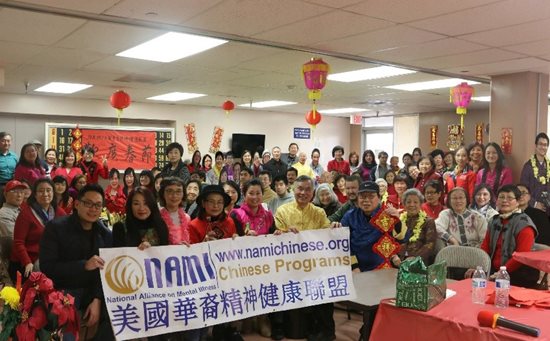For over 20 years, I had a loving family. I married my high school sweetheart and we raised a beautiful, clever daughter. I worked hard to take care of my family and be the best wife and mother I could be. But life doesn’t always follow the path we think it will. In my life, my challenge was mental illness.
My husband was only 41 years old when he died from alcoholism. My daughter and I felt this loss deeply. Soon after his death, my daughter was admitted to the hospital with psychosis and was diagnosed with bipolar disorder. She went to the hospital four times in five months.
I was crushed. I couldn’t stop crying and always felt panicky and extremely anxious. I was afraid to leave the house. For an entire week, I could not sleep. I collapsed with what I thought was a heart attack. Worst of all, I experienced suicidal ideation and wanted to take my daughter with me. Eventually, I was diagnosed with a panic disorder and depression.
Reflecting on My Husband's Life
After listening to my family history, my daughter’s physician told me that my husband likely also had bipolar disorder since college. He was probably using alcohol as a way of self-medicating. Unfortunately, during our 20-year marriage, I never realized what was wrong.
Looking back now, I can identify the symptoms. My husband would often say that he could accomplish projects that other people could not, but at other times, he would be very down and unwilling to do anything. I didn’t recognize the symptoms then, nor was I aware that alcoholism is a mental health problem. I never sought professional help for him.
If he received help when he needed it, our family tragedy might have been avoided. In the years since, I have often blamed myself for not noticing the signs. To this day, I still feel guilty. But at least I learned from this tragedy how to support both my daughter’s and my own mental health.
Helping My Daughter and Myself
After my husband died, I discovered the NAMI in Chinese programs at my local affiliate. I latched onto this opportunity to gain knowledge about mental illness and how to support my daughter.
I became actively involved in her life, including dealing with her school, seeking professional help, monitoring her medication and making sure she kept her weekly therapy appointments. I kept a record of her progress and helped her rebuild her social network by enrolling her in a support group for teenagers with bipolar disorder. Most importantly, I tried to be supportive and understanding. With time, her symptoms have improved.

After learning more about mental illness for my daughter’s benefit, I realized that I needed to seek professional help for myself as well. And through taking medication and attending therapy weekly, I gradually recovered as well.
Spreading the Word
After my experiences, I knew I wanted to help increase awareness of mental health in the Chinese community. It’s my hope that if I can get these NAMI programs into the Chinese community, what happened to me won’t happen to others.I’ve been a NAMI volunteer for four years now and I have helped establish the NAMI Chinese Community Service Committee in the San Francisco Bay Area. More than 10,000 people benefit from our free programs every year.
During my years of volunteer work, I have been constantly reminded that I’m not alone. After struggling on my own and feeling helpless for a long time, I now know that there are so many people experiencing similar struggles.
Recently, my daughter got her driver’s license. Three days later, she happily drove her grandma to a medical appointment. It’s incredible what a difference I can see in her life. Just four years ago, she was supervised in a psychiatric hospital 24-hours a day.My daughter and I are living proof that treatment works and recovery is possible. And NAMI can help get you there.
Elaine Peng is a dedicated mental health advocate and educator. She provides education to reduce public prejudice against mental illness, decrease stigma among caregivers. She has started five Chinese support groups and developed the first NAMI Chinese websitewww.namichinese.orgin the U.S. Elaine is a leader and developer of multiple NAMI programs for the Chinese Community. As a consumer and family member she helps to promote mental health services and provide peer support within the underserved Chinese Community. She was the recipient of the 2016 NAMI National's Multicultural Outreach Award and the 2017 NAMI California's Multicultural Outreach Award.

